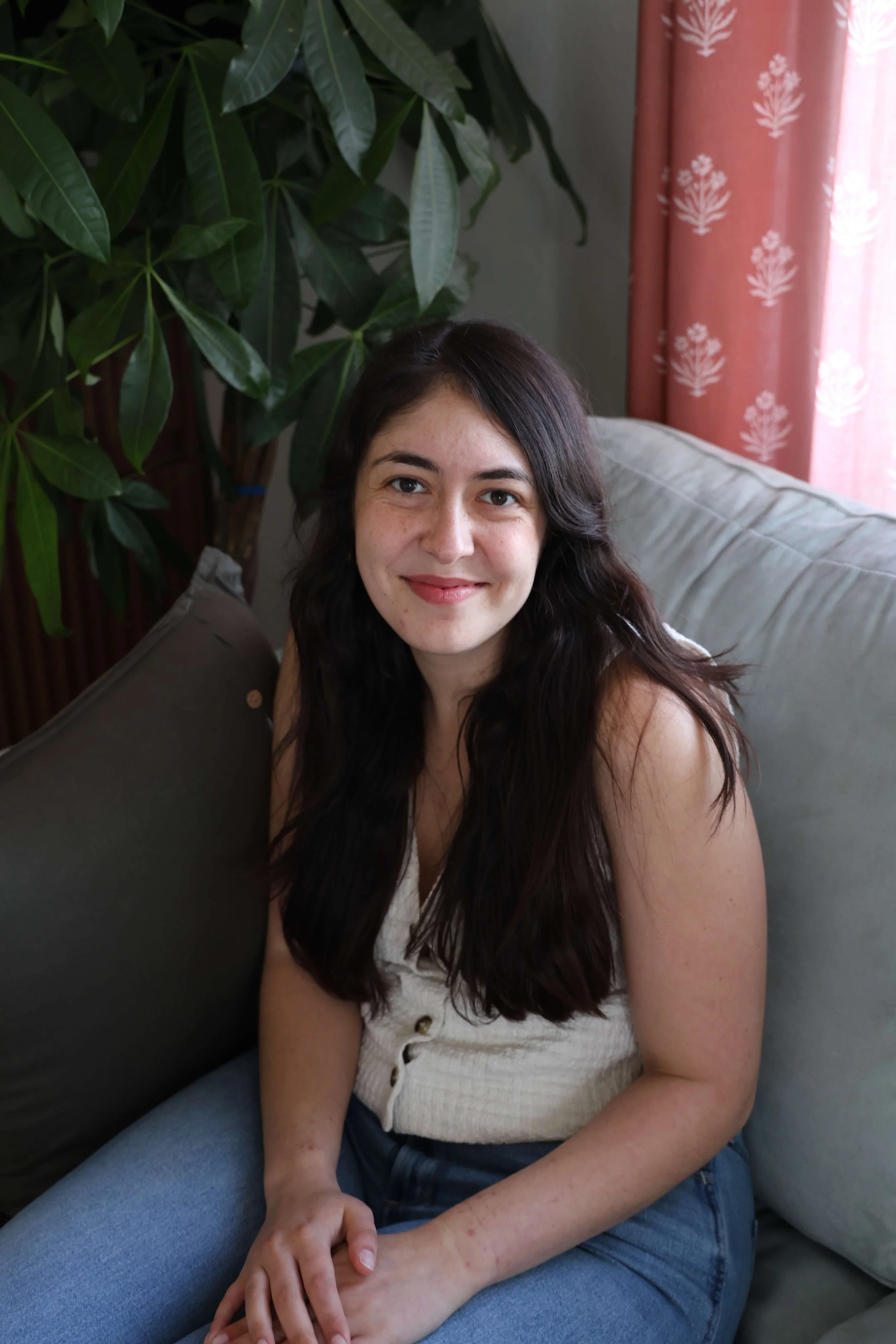On How Nature Supports Healing
In sessions with clients and in everyday conversations with friends, I’ve noticed how different people have different go-to practices for grounding themselves. For some, it’s journaling. For others, it’s music, movement, or prayer. All of these practices can be powerful. For me, the one that has offered something especially grounding and transformative is being outdoors. Though I’ve always enjoyed nature, it wasn’t until the past few years that I began to understand just how much it supports my ability to be present, self-compassionate, and connected to myself.
Why Grounding Practices Matter for Anxiety & Self-Trust
Growing up, I was pretty anxious, though I didn’t have the language for it at the time. I assumed everyone mostly felt the way I did: a constant hum of discomfort, a mind that latched on to certain worries and wouldn’t let go, the drop in my stomach before trying something new. I figured being human just meant learning to carry that weight quietly and that the people who didn’t show their distress were just better at hiding it. That belief, in some ways, taught me to hide mine too.
How Nature Became My Most Powerful Grounding Tool
It wasn’t until I started hiking that I noticed a deeper shift. I’ve done yoga and spent time as a long-distance runner, and both offered their own forms of grounding and clarity. But there’s something about being outdoors that feels uniquely regulating for me. Hiking, in particular, quieted the usual rush of thoughts, allowing me to experience a calm clarity I hadn’t known before.
Nature also helped me learn to trust myself. Last year, I took a class through the Sierra Club that covered everything from what to carry in your backpack to how to camp in the snow. It was challenging, and that challenge was part of the point.
There’s a skill in Dialectical Behavior Therapy (DBT) called ABC Please. The “B” stands for “Build Mastery.” This is the idea that by doing things that push us slightly outside our comfort zone and sticking with them, we rebuild a sense of confidence and capability. Think of the pride you felt the first time you tied your shoes or learned to spell your name. That sense of growth and agency is still available to us as adults, especially when we approach new experiences with curiosity and care.
What Embodiment Means in Therapy
Hiking, for me, is one of the clearest paths to that kind of mastery. It also offers constant invitations to embodiment. When you’re outdoors, especially on longer treks, you have to check in with yourself regularly: Am I hungry? Am I thirsty? How is my energy? Do I need to shed a layer or put one on? Nature requires a kind of attunement to your physical experience that’s often hard to access in everyday life. In that way, it becomes a practice in embodiment, something I believe is at the heart of relational therapy as well.
Reconnecting Through Sensation & Presence
In therapy, embodiment refers to the process of tuning into the physical sensations, emotions, and experiences held in the body. So often, especially when we’ve experienced anxiety, trauma, or disconnection, we learn to live in our heads, to analyze, avoid, or suppress what we feel. Embodied work helps us gently reconnect with ourselves from the inside out. It can look like tracking body sensations in therapy sessions, noticing breath patterns, or learning to name and stay with feelings as they arise. Over time, this kind of work helps build safety, awareness, and presence—foundations for lasting healing and change.
So much of healing, whether from anxiety, self-doubt, or disconnection, begins with learning how to come home to ourselves. Time spent outside has taught me how to slow down and listen to myself more closely.
Finding Your Own Path to Grounding & Healing
Everyone’s path to grounding and healing looks different. Whether it’s through nature, movement, creativity, or quiet moments of stillness, finding what helps you feel steady in your body and mind is a deeply personal journey. If you’re interested in exploring grounding techniques or embodiment in therapy, or just want someone to support you as you work through anxiety or self-doubt, I’m here to help. You deserve support as you find what works for you.
Featured therapist author:
Sarah Barukh, ACSW, the eldest of four, was shaped by her responsibility and deep familial bonds. She is a sister to a brother with high needs autism, which has given her insight into caregiving, advocacy, and the complexities of family dynamics. Sarah is exploring her Ashkenazi and Mizrahi Jewish identity through Reform Judaism, finding meaning in tradition, culture, and community. She is also personally familiar with the emotional and practical challenges of supporting a loved one through serious illness, and has struggled with anxiety since childhood, which gives her a personal understanding of what it means to live with and work through it. She is engaged in social justice and organizing, with experience in political campaigns, labor organizing, and collective action.
In her spare time, you can find her checking out way too many books from the library, sweating it out at Dance Church, getting lost on a new hike, singing at the top of my lungs in the car, and FaceTiming with the people she loves who live too far away.
GET HELP NOW
If you are interested in therapy with Kindman & Co. and would like to learn more about the services we have to help you, follow these quick & easy steps:
Schedule a free 20-minute phone consultation with our Care Coordinator.
Get matched with the therapist who’s right for you.
Start feeling more supported and fulfilled in your life and relationships!
THERAPY AT KINDMAN & CO.
We are here for your diverse L.A. counseling needs. Our team of therapists provides lgbtqia+ affirmative therapy, couples therapy & premarital counseling, grief & loss counseling, group therapy, and more. We have specialists in trauma, women's issues, depression & anxiety, substance use, mindfulness & embodiment, and support for creatives. For therapists and practice owners, we also provide consultation and supervision services! We look forward to welcoming you for therapy in Highland Park and online.


